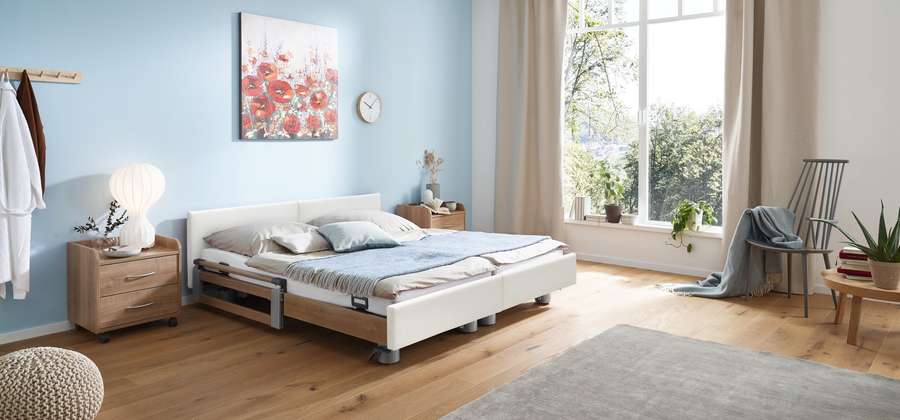
"Stable prices remain the highest goal at Burmeier"
Managing Director Reiner Rekemeier explains why price reductions in the care bed sector are not yet possible

Germany is still firmly in the grip of inflation. In June 2023 it even rose again to 6.4 percent. This value adds up to the already high figures of previous years. The expected global average inflation rate for 2023 lies at 7%. It is therefore understandable that the hope for prices to drop soon is becoming more and more urgent. But on the part of the industrial sector, this hope cannot yet be fulfilled in many areas. Reiner Rekemeier, Managing Director of Burmeier, analyses the situation in homecare beds and furniture and gives an outlook for the future.
Mr Rekemeier, what influences the prices for assistive devices?
We have to differentiate strongly here: A care bed is not a walker. Basically, each manufacturer has its own value chain and each product its own cost structure. It is therefore important to look at each product group individually so as not to compare apples with oranges. The material mix used and the costs for manufacturing, warehousing and logistics are very different.
Do you have an example?
In homecare, for example, look at the price increases in the medical supply sector. Toilet chairs have become 45 percent more expensive during the crisis, toilet seat raisers even up to 75 percent. In comparison, the total price increases for care beds have been much more moderate, averaging 18 percent.
What is the difference between care beds and rehab standard items?
Manufacturers of standard rehabilitation items such as walkers, wheelchairs or bath and hygiene aids mainly source their goods from external production in Asia and thus have a completely different cost structure. Due to the low product value, the freight costs often determine the pricing.
Why are manufacturers in the rehab standard sector now lowering prices in isolated cases?
Because they theoretically have the opportunity to do so, especially due to the sharp drop in container freight from Asia to Europe. There are also enough free container capacities on these routes again, so that the cost-driving stockpiling of goods in Europe is no longer necessary to the same extent. In the case of mattresses, it seems that the bottleneck of chemicals used has at least partially disappeared. Overall, the development is very individual.

What does this mean for the cost situation at Burmeier?
Unfortunately, we hardly benefit at all from these relieving factors. Burmeier manufactures in its own factories in Europe and uses only a few materials from Asia. This has saved us from the immense price increases of the rehab standard articles mentioned in 2021 and 2022. We were also always able to deliver during the Covid pandemic, unlike other manufacturers. So there are many advantages for our customers, but at the moment they do not contribute to an easing of the price situation.
Since 2022, there has been a very emotional discussion in Germany about rising energy costs. Does this issue also affect Burmeier?
This affects us greatly – and not only in Germany. Electricity prices have also risen sharply in our neighbouring country Poland. Our Kepno plant in southern Poland plays an important role in the production of our care beds. The current electricity price there is still more than 250 percent of the 2021 value.
When will Burmeier lower its prices?
We continue to monitor price developments very closely. Unfortunately, despite slight decreases in raw material prices, our manufacturing costs are still more than 40 per cent higher than before the pandemic.
At the same time, the cost of wood and electrical components has not decreased since the last price adjustment. The shortage of semiconductors and chips and the constantly high prices for the materials they contain, copper and plastic, continue to be driven by the automotive industry. An easing is not to be expected even in view of the plans for the energy transition.
The development of the general wage level throughout Europe puts a lasting burden on production costs. For the years 2020 to 2024, for example, the Polish government has legislated the gradual increase of the minimum wage by a total of 65 percent.
We therefore expect a slight easing of overall costs in 2024 at the earliest, which will enable us to reduce prices. Until then, price stability and supply capability remain our top priorities.



